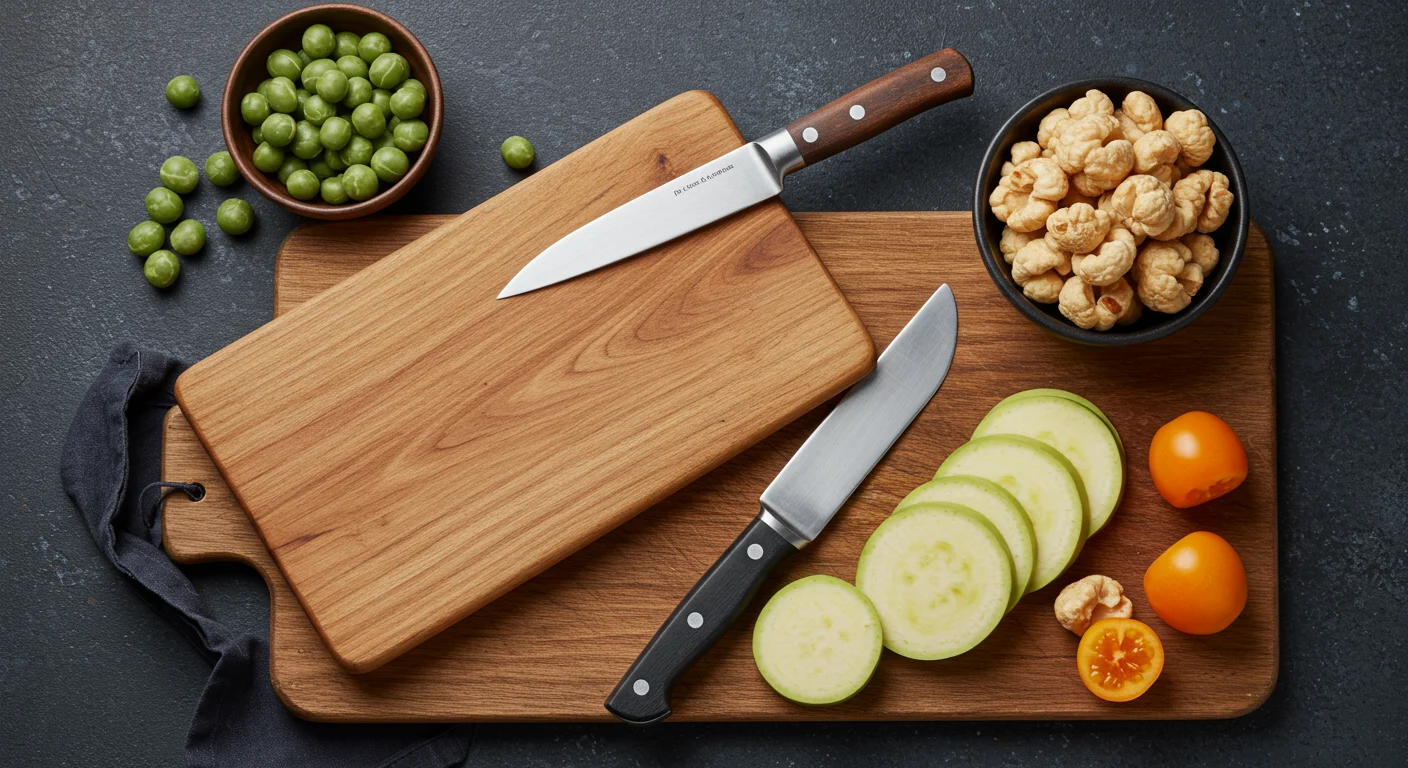
Is Bamboo a Good Cutting Board? The Ultimate Guide
In the quest for a more sustainable and efficient kitchen, every tool comes under scrutiny, especially the humble cutting board. It’s the foundation of your meal prep, and the material you choose matters. A question we see frequently is, 'is bamboo a good cutting board?' It’s a fantastic question. Bamboo has surged in popularity as an eco-friendly alternative to traditional wood and plastic. But how does it really perform under the pressure of a chef's knife? This guide will slice into the details, comparing bamboo and classic wood to help you make the best choice for your culinary needs.
The Case for Bamboo: A Sustainable Powerhouse
Bamboo's biggest claim to fame is its sustainability. Unlike hardwood trees that can take decades to mature, bamboo is a type of grass that reaches maturity in just 3-5 years, regrowing from its own root system without needing replanting. This rapid renewability makes it an excellent environmental choice. Functionally, bamboo is denser and less porous than many hardwoods. This gives it superior water resistance, which means it's less likely to warp or crack. Its hard surface also resists knife scarring and harbors fewer bacteria, making it a hygienic option for your kitchen.
The Enduring Appeal of Wooden Cutting Boards
Wooden cutting boards are the classic, time-tested champion of the kitchen, and for good reason. Their primary advantage lies in their relationship with your knives. Wood, particularly end-grain constructions from materials like maple or walnut, is 'self-healing.' The wood fibers can part to accept the knife's edge and then close back up, which is significantly gentler on your blades and keeps them sharper for longer. While requiring more diligent maintenance like regular oiling to prevent drying out, a well-cared-for wooden board is incredibly durable and can last a lifetime, often becoming a cherished kitchen heirloom.
Head-to-Head: Bamboo vs. Wood
So, is bamboo a good cutting board when compared directly to wood? The answer depends on your priorities. For knife longevity, wood is the clear winner due to its softer, more forgiving fibers. However, the hardness of bamboo means it's more resistant to deep scratches and generally more durable against daily chopping. In terms of maintenance, bamboo's low porosity gives it an edge in water resistance, but it cannot be sanded down and refinished like a wooden board can. From a sustainability standpoint, bamboo's rapid growth cycle is hard to beat. Both are excellent alternatives to plastic, offering a far more sustainable and satisfying prep surface.
The Final Verdict: Which Board is Best for You?
Choosing between bamboo and wood is a personal decision. If you prioritize an eco-friendly, low-maintenance, and highly durable surface, bamboo is an outstanding choice. If you are a culinary enthusiast who treasures high-end knives and wants a board that preserves their edge above all else, a traditional wood board might be your ideal partner. Both materials elevate the cooking experience and contribute to a more sustainable kitchen. To see which specific models stood up to our rigorous testing for durability, knife-friendliness, and overall value, explore our comprehensive review of the year's best cutting boards.












